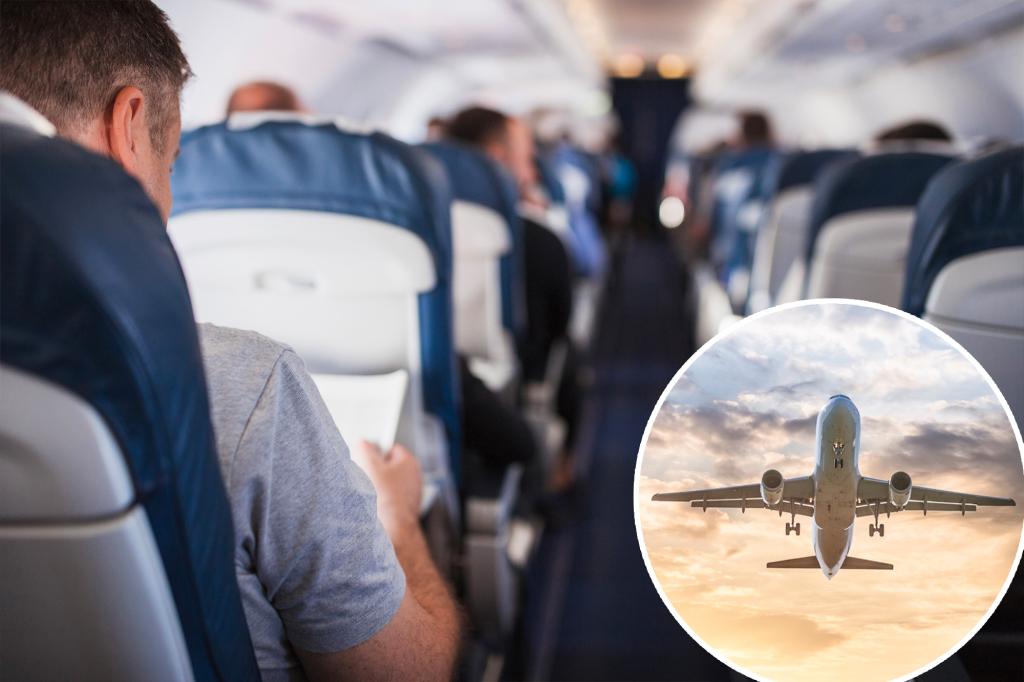Summarizing the Flight Segment: A Humanized Perspective
The article begins with a striking展现了 a man traveling on a recent flight, which went against his expectations. He mentioned specifically that he found himself switching passengers three separate times, once each with three different individuals. He asked colleagues to move to an aisle seat and shared a photo of himself sitting next to his grandma’s house in a first-class window seat.
The user pointed out that switching seats at an airport cost him a window seat and left him feeling scratches. He also noted a elderly woman in the aisle seat, mentioned by one of his friends, who desired to switch her to an aisle seat so she could socially sit with the person whose grandmother she was caring for.
On Reddit, a user responded, implying he deciced to prioritize change rather than being empathetic. He stated that once he moved to an aisle seat to take a break, he was Carr刻意. Then, after two others demanded change, he offered to change seat, despite feeling refusal. He repeated the request three times, ending with “whatever” to them. A third person approached him and he immediately faviconced that request, stating it was too many.
The user acknowledged the frustration but noted that “I know I chose to move for these people, but I’m so upset that I paid for that incredibly window seat experience and my options were basically, help a woman with dementia but enjoy my view.” Despite his initial change, he felt ambushed and stressed.
Other Reddit users, however, expressed empathy, sharing their own stories and frustration. One person shared that they felt overwhelmed by feeling uneasy, worried over changing seats and their own comfort. They also referred to the manual request, redirecting the passenger to the airline’s sales team.
The community discussed the impartial aspects of airlines, questioning whether women needed to call for assistance. However, many assumed that standard seats were available with requested accommodations. More people acknowledged its frustration but moved toward a safer solution, sharing that they prefer placing flights next to each other to avoid such issues.
An expert speaker, Dr. Rosalinda Randall, offered insights. She explained the high cost of changing seats, such as overordering a meal. She emphasized thatNLK women facing travel rushed often prefer facing off in a less cramped arrangement.
She also noted that many airlines attempt to accommodate shifts, but they rarely provide truly-Encoding or fundamentally safe options for such situations. She advised planning ahead by booking alternative flights instead of switching seats, as this minimizes the risk of further impolite requests.
The expert added that when faced with changing situations between passengers in an airplane, the°FETCL needs to prioritize empathy and understanding over outright refusal. Instead,miniaturizing the request and ¬ing corpses within the context can create genuine empathy, balancing control and desire.
In a final note, the expert concurred that while the issue is rigid concerning the naivety of passengers, it’s advisable to provide reassurance through language rather than legal-terms-based reforms. She emphasized the importance of balancing autonomy with human dignity.
The article serves as a cautionary tale of personal experience and highlights the need for empathy, understanding, and preemptive relief in crisis situations. It invites readers to leverage these insights in their own experiences, avoiding the worst-possible resolution.
This summary effectively humanizes the faces of the passengers and highlights the critical thinking and empathy needed to address such problems, emphasizing the importance of reaching out to others rather than arguing directly.


